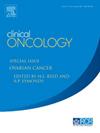丹麦和瑞典国家癌症数据收集--放射治疗解决方案。
IF 3.2
3区 医学
Q2 ONCOLOGY
引用次数: 0
摘要
众所周知,从临床系统中收集大量放射治疗(RT)数据是一项具有挑战性的任务。尽管如此,仍需要收集原始 RT 系统之外的数据,以跟进癌症治疗的质量并改进 RT。本文旨在介绍丹麦和瑞典如何为此在全国范围内收集 RT 数据,并概述两国国家数据源中存储的信息。虽然这两个国家都拥有覆盖面广、完整的国家临床质量登记册,涵盖了许多癌症诊断,但其中一些登记册早在上世纪七十年代就已启动,只有不到十分之一的登记册包含有关 RT 的定量信息,其详细程度只能用于基本的描述性统计。不过,详细的 RT 数据可以在 2009 年启动的丹麦 DICOM 协作(DcmCollab)数据库和 2023 年启动的瑞典 RT 质量登记(SKvaRT)中找到。丹麦收集了所有临床试验入组患者的 DICOM 原始数据,文件从每个 RT 中心的原始数据源直接自动传输到 DcmCollab。瑞典将瑞典所有接受 RT 治疗的患者的 RT 数据汇总到 SKvaRT,通过各医院的本地中间存储数据库(MIQA)传输 DICOM 文件并转发选定的字母数字变量。在设计各自的解决方案时,两国在收集哪些 RT 变量以及如何在技术上将临床系统与其数据存储库连接起来方面都面临着类似的挑战。本文介绍了目前如何在灵活性与存储要求和数据标准之间取得平衡的一般经验,以及未来收集真实 RT 数据的计划。本文章由计算机程序翻译,如有差异,请以英文原文为准。
Danish and Swedish National Data Collections for Cancer – Solutions for Radiotherapy
Collecting large amounts of radiotherapy (RT) data from clinical systems is known to be a challenging task. Still, data collections outside the original RT systems are needed to follow-up on the quality of cancer care and to improve RT. This paper aims to describe how RT data is collected nationally in Denmark and Sweden for this purpose and gives an overview of the stored information in both countries' national data sources.
Although both countries have clinical national quality registries with broad coverage and completeness for many cancer diagnoses, some were initiated already in the seventies, and less than one in ten includes quantitative information on RT to a level of detail useful for more than basic descriptive statistics. Detailed RT data can, however, be found in Denmark's DICOM Collaboration (DcmCollab) database, initiated in 2009 and in Sweden's quality registry for RT launched in 2023 (SKvaRT). Denmark has collected raw DICOM data for all patients enrolled in clinical trials, with files being directly and automatically transferred to DcmCollab from the original data sources at each RT centre. Sweden collects aggregated RT data into SKvaRT for all patients undergoing RT in Sweden, with DICOM files being transferred and selected alpha-numeric variables forwarded via a local intermediate storage database (MIQA) at each hospital. In designing their respective solutions, both countries have faced similar challenges regarding which RT variables to collect and how to technically link clinical systems to their data repositories. General lessons about how flexibility currently is balanced with storage requirements and data standards are presented here together with future plans to harvest real-world RT data.
求助全文
通过发布文献求助,成功后即可免费获取论文全文。
去求助
来源期刊

Clinical oncology
医学-肿瘤学
CiteScore
5.20
自引率
8.80%
发文量
332
审稿时长
40 days
期刊介绍:
Clinical Oncology is an International cancer journal covering all aspects of the clinical management of cancer patients, reflecting a multidisciplinary approach to therapy. Papers, editorials and reviews are published on all types of malignant disease embracing, pathology, diagnosis and treatment, including radiotherapy, chemotherapy, surgery, combined modality treatment and palliative care. Research and review papers covering epidemiology, radiobiology, radiation physics, tumour biology, and immunology are also published, together with letters to the editor, case reports and book reviews.
 求助内容:
求助内容: 应助结果提醒方式:
应助结果提醒方式:


